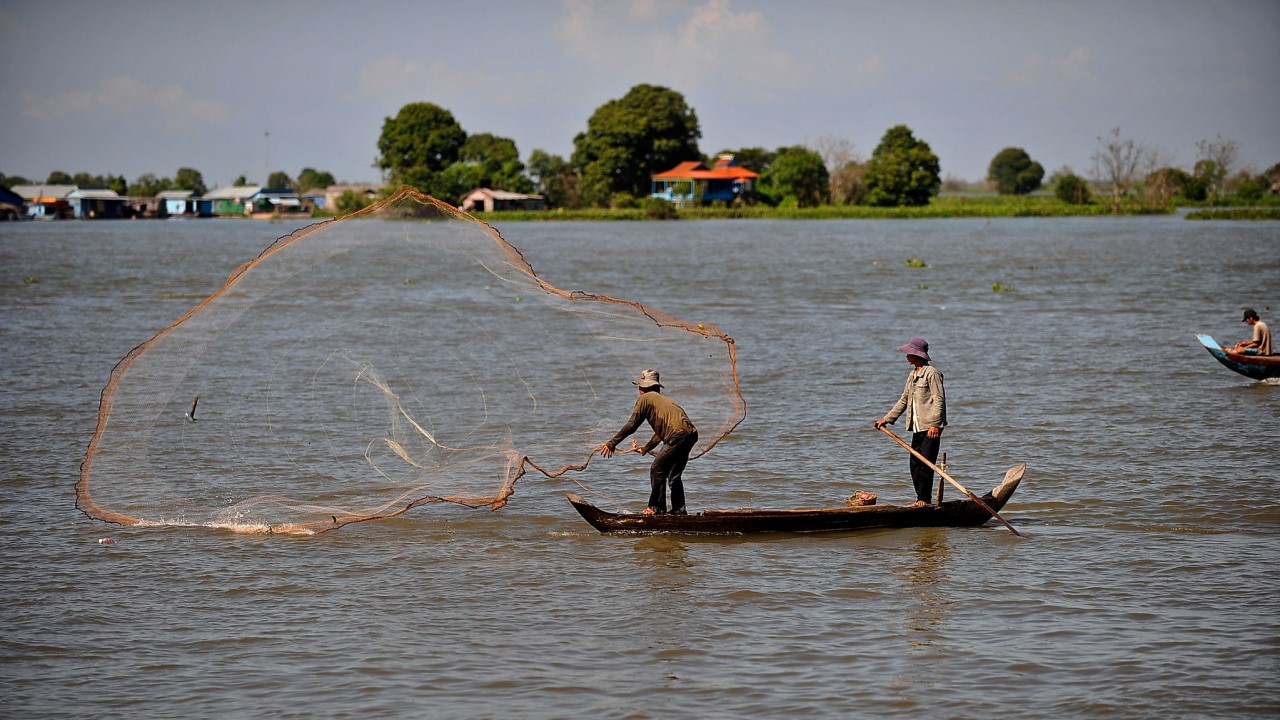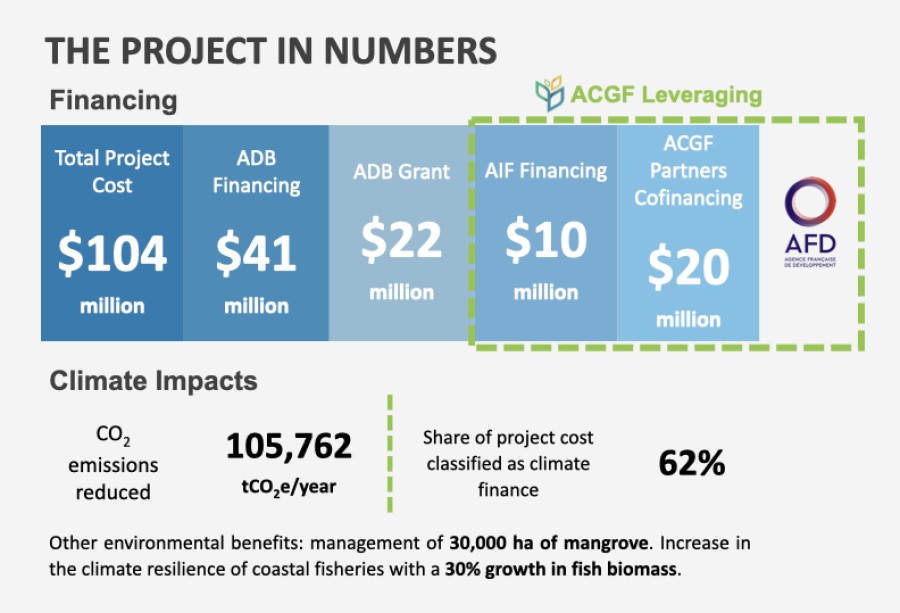
The project will increase the climate resilience and sustainability of coastal and marine fisheries in Cambodia. Photo credit: ADB.
The project is ADB's first significant investment in marine fisheries and represents a milestone for ADB’s Action Plan for Healthy Oceans and Sustainable Blue Economies.
![]() ISSUE: Coastal communities impacted by ecosystem degradation caused by climate change and unsustainable fishing.
ISSUE: Coastal communities impacted by ecosystem degradation caused by climate change and unsustainable fishing.
In the Gulf of Thailand, climate change is driving ocean acidification, increasing water temperatures, changing currents, raising the sea level, and increasing the frequency and severity of weather events. Unsustainable fishing has led to ecosystem degradation and a significant decline in fish stocks, impacting coastal communities and businesses, making them extremely vulnerable to external shocks, and driving up the price of fish. In parallel, mangroves and seagrass beds are declining, reducing their capacity as important carbon sinks.
![]() SOLUTION: Sustainable fishing practices and climate resilient coastal infrastructure, for improved livelihoods, increased fish biomass, and haltered loss of mangrove areas.
SOLUTION: Sustainable fishing practices and climate resilient coastal infrastructure, for improved livelihoods, increased fish biomass, and haltered loss of mangrove areas.
The Sustainable Coastal and Marine Fisheries Project was approved for financing by ADB in December 2022 as its first significant investment in marine fisheries. The project will increase the climate resilience and sustainability of coastal and marine fisheries in Cambodia, in line with its updated NDCs. It will make a significant contribution to climate change adaptation, through improved ecosystem use and management and development of climate resilient coastal infrastructure to increase fish stocks and halter the loss of mangroves. The project will promote private sector development in coastal communities by diversifying livelihoods and scaling up viable enterprises. About 40% of nearshore fisheries are expected to become more productive and sustainable enterprises.
![]() HOW DID THE GFH AND ACGF HELP?
HOW DID THE GFH AND ACGF HELP?
In 2020, the ACGF, managed by the Southeast Asia Department's Green Finance Hub (GFH), conducted the first conceptualization mission with ADB and Cambodia’s Ministry of Agriculture, Forestry and Fisheries. In 2021, ACGF led a comprehensive climate change assessment of the project, developed a greenhouse gas emissions profile, and identified adaptation measures for key climate risks. It then prepared an assessment of Cambodia’s marine fisheries value chain and its financing landscape to pinpoint private sector investment opportunities, leading to the incorporation of a marine business incubator program to support local enterprises. The ACGF contributed directly to project cofinancing from both ASEAN Infrastructure Fund (AIF) and Agence Française de Développement (AFD). It also co-led project preparation activities, provided end-to-end support from ideation to financial close, and helped shape the project to focus on long-term climate resilience in Cambodia's coastal areas, resulting in a strong adaptation project. The project is considered a milestone for ADB’s Action Plan for Healthy Oceans and will benefit 20,000 households and 200,000 people across Cambodia’s four coastal provinces.
